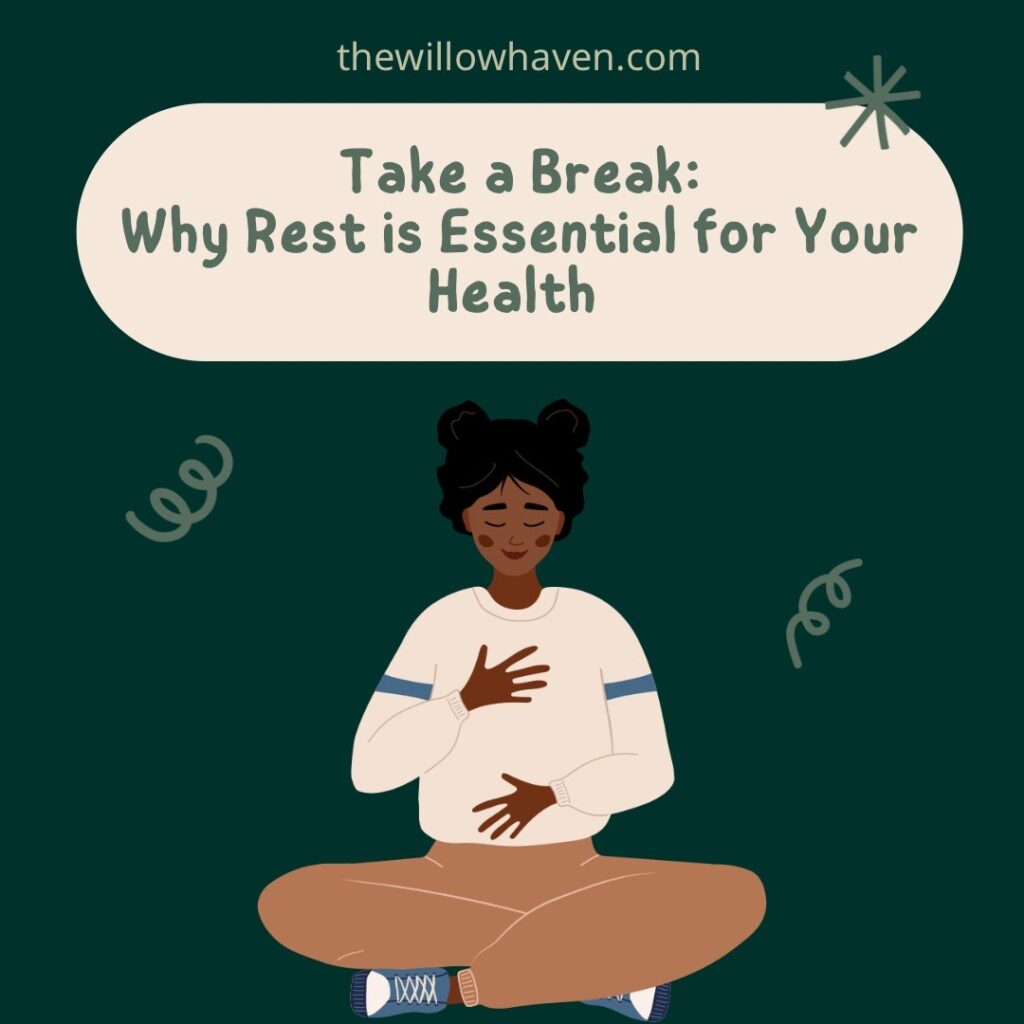In today’s fast-paced world, it’s common for people to feel like they’re always on the go. Balancing work, family, and relationships can be tough, and sometimes it feels like there’s no time to rest. But did you know that not taking breaks can have a negative impact on both your physical and mental health? When we ignore our body’s cues, we can experience chronic pain, tension, and even digestive issues. Plus, not giving yourself permission to rest can lead to burnout and exhaustion. That’s why it’s important to make an effort to slow down and prioritize taking care of you. Take a break, go for a walk, or simply breathe deeply for a few minutes. Your body and mind will thank you.
Interoceptive awareness is the ability to perceive and understand the sensations and signals that our bodies send us. It’s the foundation of our physical and emotional well-being. When we’re in tune with our bodies, we’re better equipped to make decisions that support our health and happiness. However, repeated traumas and current systems in place can impact our connection to our bodies and our ability to listen to its cues.

Trauma can cause us to dissociate from our bodies, leading to a disconnection and lack of awareness of our physical sensations. This can manifest in various ways, such as chronic pain, emotional numbness, and difficulty with self-regulation. For example, someone who experienced childhood trauma may have learned to disconnect from their body as a coping mechanism, leading to a lack of awareness of hunger and fullness cues. This can lead to disordered eating patterns and a disrupted relationship with food and the body.
Similarly, current systems in place such as diet culture, ableism, and racism can contribute to a disconnection from our bodies. Diet culture promotes weight loss as the ultimate goal, leading to a focus on external cues such as calorie counting and restrictive eating, rather than internal cues such as hunger and fullness. Ableism can lead to a lack of awareness of our physical limitations and needs, as we try to push ourselves beyond what’s comfortable or safe. Racism can also impact our connection to our bodies, as people of color may experience racial trauma that can lead to dissociation and disconnection.
Improving our interoceptive awareness can take time and effort, but it’s an essential part of our overall well-being. One way to start is by practicing mindfulness and paying attention to our body’s sensations. This can include taking breaks throughout the day to engage in deep breathing or progressive muscle relaxation, or incorporating movement such as yoga or walking into our daily routine. Additionally, seeking support from a therapist or healthcare provider can be helpful in addressing trauma and supporting our connection to our bodies.
In conclusion, interoceptive awareness is crucial for our physical and emotional well-being. By taking the time to listen to our body’s cues and prioritize self-care, we can improve our connection to our bodies and support our overall health and happiness. The Intuitive Eating Workbook by Evelyn Tribole, MS, RDN, CEDRD-S and Elyse Resch, MS, RDN, CEDRD-S, FIAEDP, FADA, FAND is a great resource for those looking to improve their interoceptive awareness and develop a healthier relationship with food and their bodies. Let’s make an effort to slow down, listen to our bodies, and prioritize self-care.
If you’re ready to start therapy and improve your interoceptive awareness, feel free to schedule an appointment with me today here!
